Lessons from the 12 best books on investing
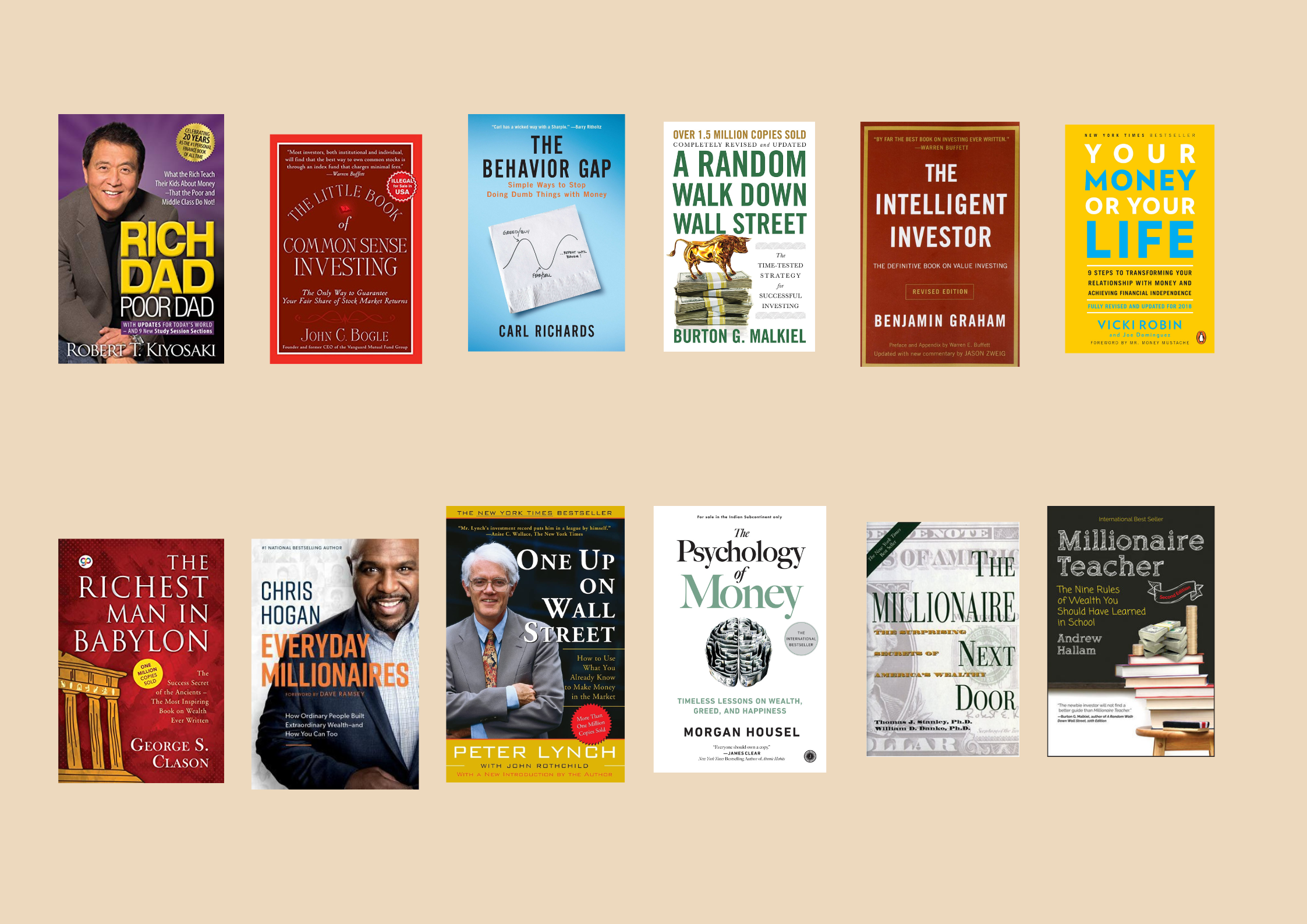
1. The Intelligent Investor
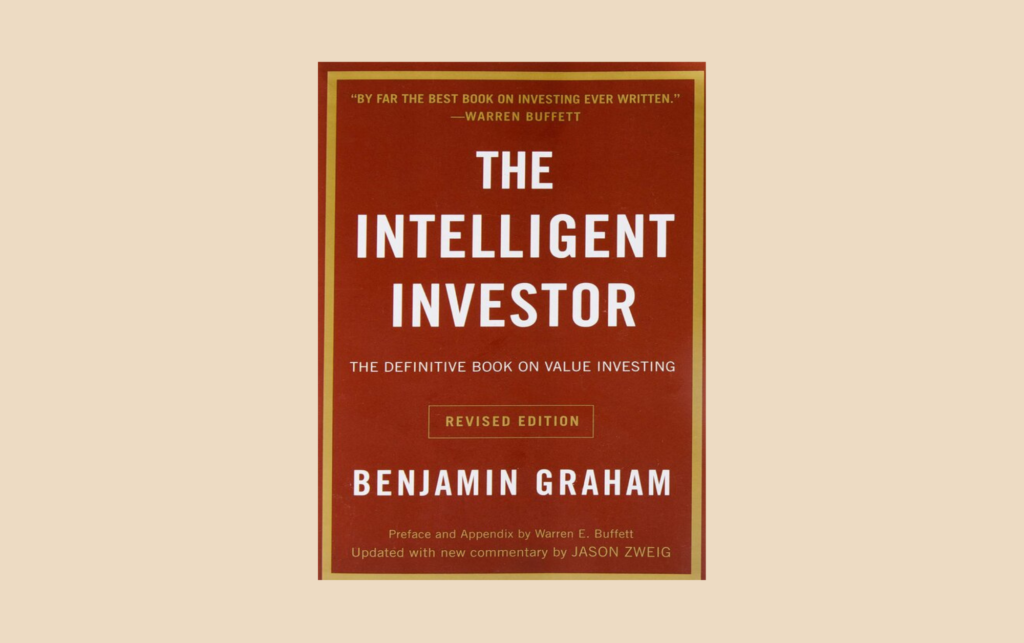
The Intelligent Investor is a book on value investing written by Benjamin Graham and published in 1949. It is considered a classic in the field of investing and is widely regarded as one of the most influential books of all time.
The book provides a comprehensive introduction to the principles of value investing and offers insights into the mindset and methods of successful investors.
Lessons from The Intelligent Investor:
The difference between speculation and investment: The book emphasises the importance of understanding the difference between speculation and investment and the dangers of speculation for inexperienced investors.
The importance of a long-term perspective: Graham stresses the importance of taking a long-term view when investing and avoiding the temptation to make short-term, impulsive decisions.
The need for discipline: The book argues that discipline is key to success as an investor and that investors must be able to stick to their investment strategy even in the face of market volatility.
Value investing: The book introduces the concept of value investing and explains why it is a more effective and less risky approach to investing than speculation.
Mr. Market: Graham uses the example of Mr. Market, a whimsical character who represents the stock market, to demonstrate the importance of keeping a cool head and avoiding the temptation to make decisions based on short-term market movements.
The importance of thorough research: The book argues that investors must do their due diligence and conduct thorough research before making investment decisions.
The role of the margin of safety: Graham introduces the concept of the margin of safety and explains why it is essential to reducing risk in investing.
The importance of diversification: The book emphasises the importance of diversifying one’s investments to reduce risk and improve overall returns.
2. The Little Book of Common Sense Investing
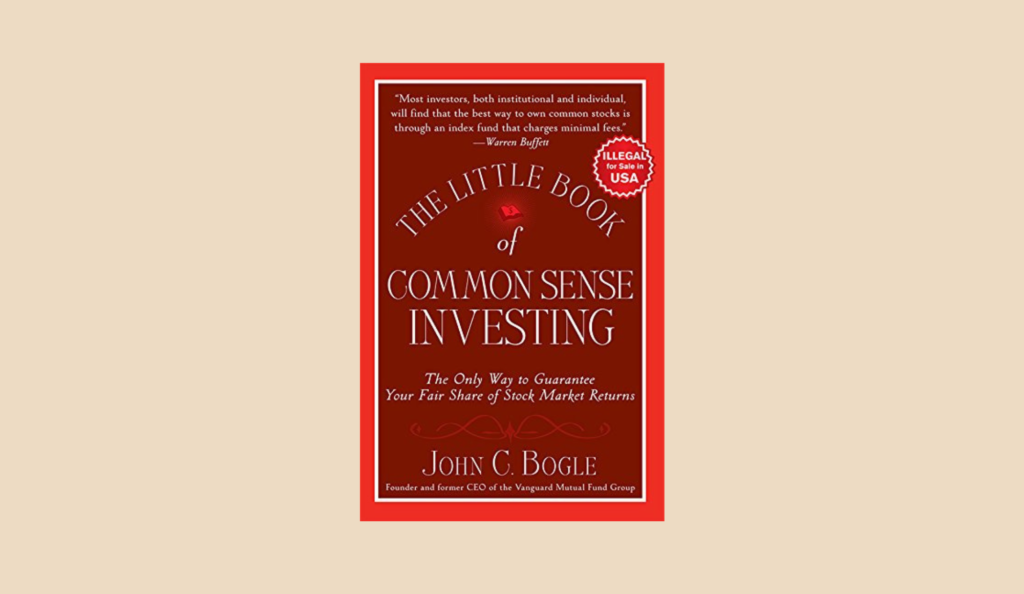
John C. Bogle is the founder of the Vanguard Group and is widely regarded as the father of index investing. Bogle is a pioneer in the field of low-cost, passive investment strategies and is best known for his advocacy of index funds.
The Little Book of Common Sense Investing is one of Bogle’s most well-known works and provides his insights and philosophy on investing. In the book, Bogle argues for a simple, low-cost, and passive investment approach based on index funds and provides a comprehensive introduction to the principles of index investing.
Here are some key lessons from The Little Book of Common Sense Investing:
The benefits of passive investing: Bogle argues that passive investment strategies, such as index funds, are a better choice for most investors compared to actively managed funds.
The dangers of market timing: The book warns against trying to time the market and instead recommends focusing on the long term.
The importance of low costs: Bogle emphasises the importance of keeping investment costs low, as high costs can eat into returns over time.
The dangers of investment fads: The book warns against chasing investment fads and instead recommends a simple, straightforward investment strategy.
The value of simplicity: Bogle argues that simplicity is key to success as an investor and that investors should avoid complex, sophisticated investment strategies in favour of a straightforward approach.
The power of patience: The book stresses the importance of patience and not trying to time the market or make impulsive decisions.
The importance of sticking to a plan: The book advocates for a well-thought-out investment plan and sticking to it over the long term, even during market volatility.
3. The Millionaire Teacher
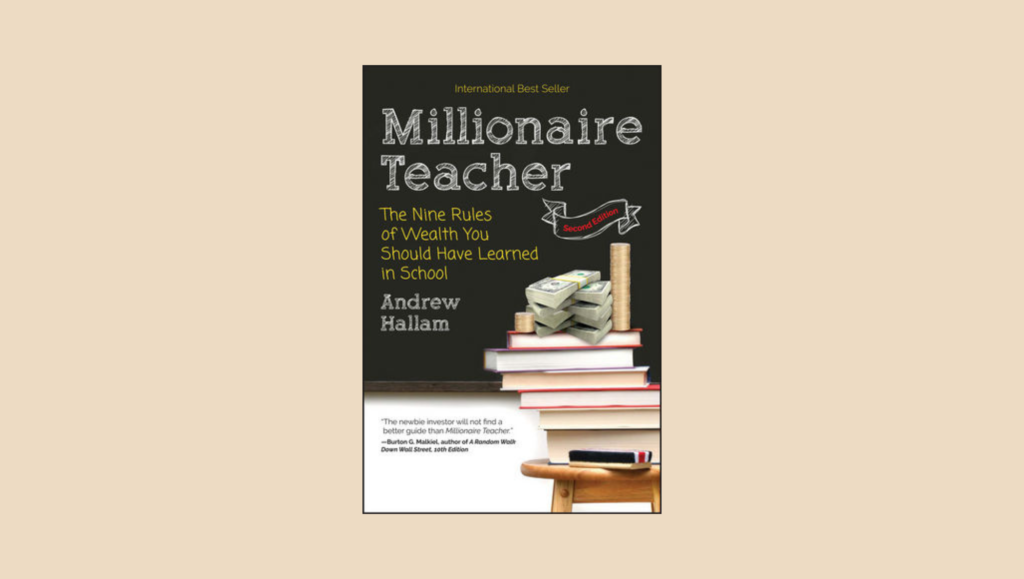
This book by Andrew Hallam provides financial advice and investment strategies for individuals looking to build wealth. The author shares his own experiences as a teacher who became a millionaire and explains the principles that helped him achieve financial independence.
Here are some key lessons from The Millionaire Teacher:
The importance of saving: Hallam emphasises the importance of saving a significant portion of one’s income and avoiding debt as a foundation for building wealth.
The dangers of high-cost investments: The book warns against high-cost investment products and instead recommends low-cost index funds.
The importance of diversification: Hallam explains the importance of diversifying investments to reduce risk and improve returns over the long term.
The power of compounding: The book highlights the benefits of compounding returns and the importance of investing as early as possible.
The dangers of market timing: The book warns against trying to time the market and instead recommends focusing on the long term.
The importance of sticking to a plan: The importance of having a well-thought-out investment plan and sticking to it over the long term, even during market volatility.
4. The Richest Man in Babylon
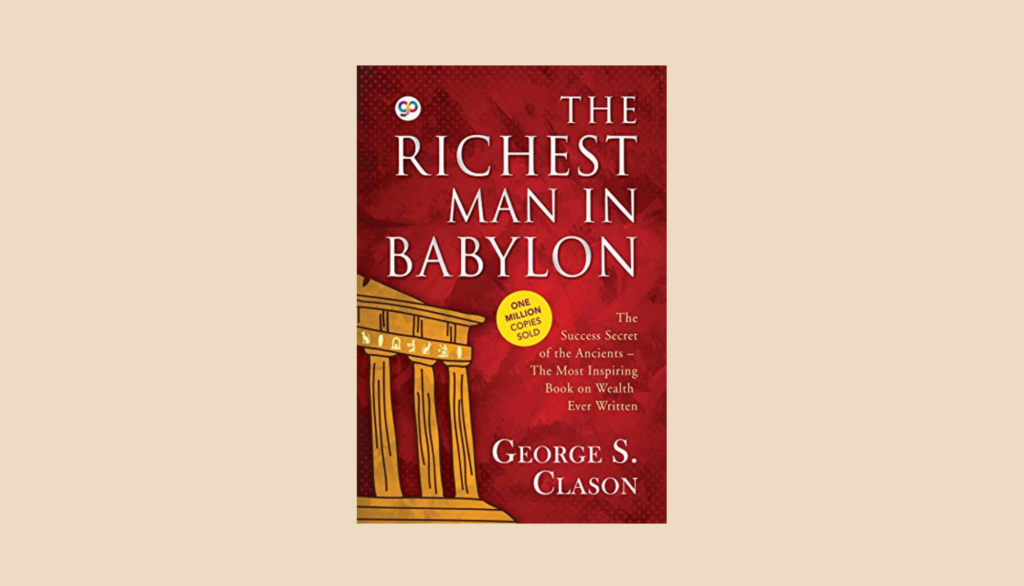
The Richest Man in Babylon is a classic book by George S. Clason that provides financial advice through parables set in ancient Babylon. The book teaches timeless principles of wealth building and financial management through stories of the people of Babylon.
Here are some key lessons from The Richest Man in Babylon:
Pay yourself first: The importance of setting aside a portion of one’s income for savings and investments before paying bills and living expenses.
Start thy purse to fattening: Encourages individuals to focus on growing their wealth and taking advantage of opportunities to increase their income.
Control thy expenditures: The book emphasises the importance of managing expenses and avoiding debt to build wealth.
Make thy gold multiply: Importance of investing in profitable ventures, such as real estate or businesses, to grow wealth.
Guard thy treasures against loss: The importance of diversifying investments and avoiding high-risk, speculative investments.
Ensure a future income: Encourages individuals to plan for their future by creating a reliable income stream through savings, investments, and pension plans.
Increase wisdom: Importance of education and learning as a path to financial success and encourages individuals to seek out wise and experienced advisors.
Live within thy means: The book encourages individuals to live within their means and avoid overspending and debt.
These lessons from The Richest Man in Babylon are designed to help individuals make smart financial decisions and build wealth over the long term.
5. A Random Walk Down Wall Street
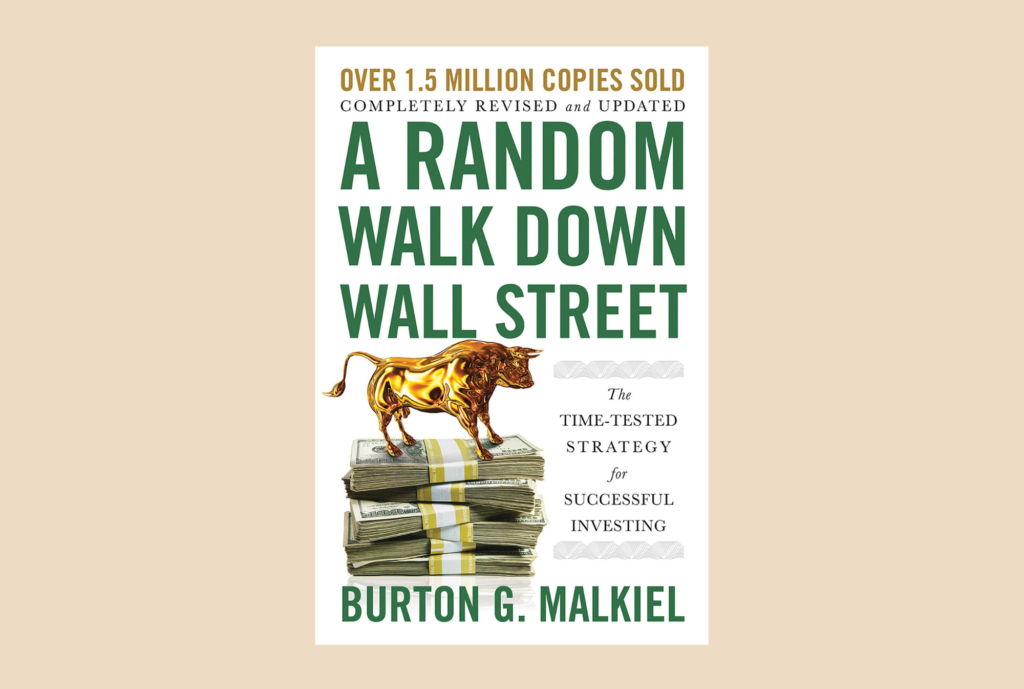
This is a book by Burton Malkiel that provides an overview of the stock market and investment strategies.
The book is best known for its advocacy of efficient market theory and its criticism of active investment strategies.
Here are some key lessons from A Random Walk Down Wall Street:
The efficient market hypothesis: Financial markets are generally efficient, and it is difficult for investors to consistently outperform the market through active investment strategies.
The role of behaviour in investing: Role of behaviour and emotions in investment decisions, and the importance of avoiding common behavioural biases.
The dangers of past performance: The book warns against relying on past performance when making investment decisions, as past performance does not guarantee future results.
6. The Psychology of Money
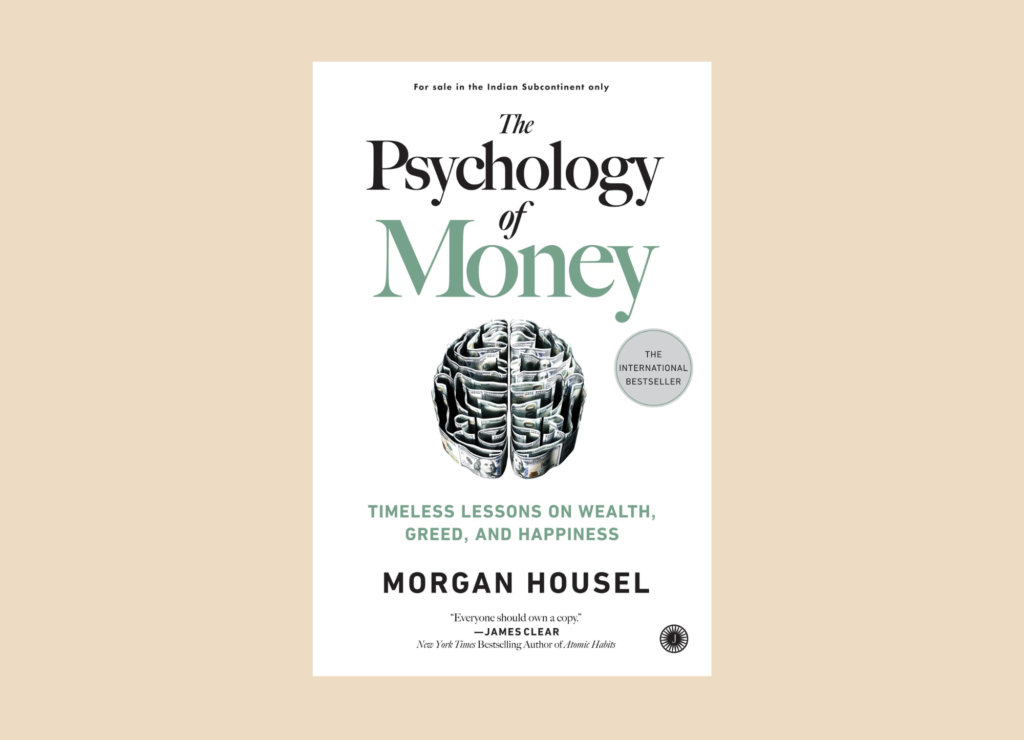
Timeless Lessons on Wealth, Greed, and Happiness is a book by Morgan Housel that explores the psychological and emotional factors that drive our relationship with money.
The book provides insights into the human biases, fears, and habits that can lead to poor financial decision-making and offers advice on overcoming them.
Here are some key lessons from The Psychology of Money:
The role of luck: The book emphasises the role that luck plays in wealth creation and highlights the importance of recognising that success is often due to factors beyond an individual’s control.
The dangers of greed: The book warns against the negative effects of greed and highlights the importance of having a healthy attitude towards money and wealth.
The power of patience: The importance of patience and long-term thinking in building wealth, and the dangers of making impulsive financial decisions based on short-term emotions.
The influence of emotions: Explores the role that emotions play in financial decision-making and offers strategies for avoiding emotional biases and impulses.
The dangers of overconfidence: The book warns against the dangers of overconfidence in financial decision-making and highlights the importance of humility and a willingness to learn.
The importance of education: The book emphasises the importance of education and financial literacy in achieving financial success and avoiding common financial pitfalls.
These lessons from The Psychology of Money provide a deep insight into the psychological and emotional factors that influence our relationship with money and offer practical advice for overcoming these biases and building wealth over the long term.
7. Rich Dad Poor Dad
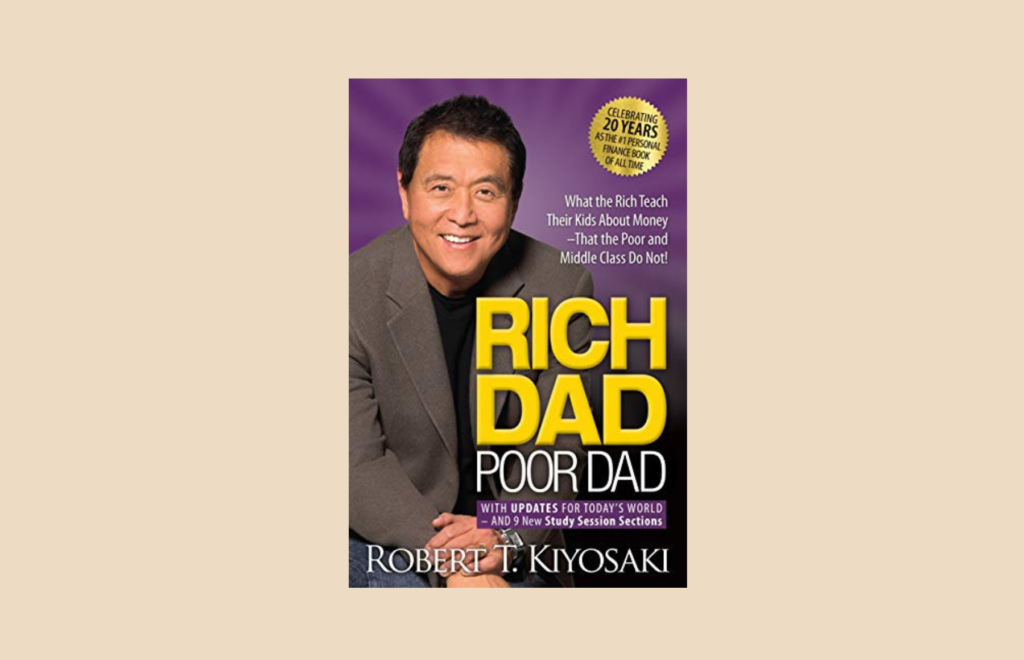
This is a book by Robert Kiyosaki that provides financial advice through a series of personal anecdotes and lessons from his two “dads,” one a traditional “poor dad” and the other a wealthy and unconventional “rich dad.”
The book challenges conventional wisdom about money and wealth and offers a new perspective on financial success.
Here are some key lessons from Rich Dad Poor Dad:
The importance of financial education: Stresses the importance of financial education and highlights the need for individuals to take responsibility for their financial well-being.
The power of passive income: The book emphasises the importance of building passive income streams, such as rental properties or businesses, to achieve financial freedom.
The dangers of traditional employment: Challenges the conventional wisdom of relying on a traditional job for financial security and argues that this approach is likely to lead to financial dependence.
The value of assets: The importance of acquiring assets, such as real estate, businesses, and stocks, as a foundation for building wealth.
The dangers of debt: The book highlights the dangers of debt, especially consumer debt, and argues that debt is a tool used by the rich to grow their wealth.
The importance of financial independence: Encourages individuals to strive for financial independence and to take control of their financial future.
The value of entrepreneurship: The importance of entrepreneurship and highlights the potential for business owners to generate wealth and financial freedom.
The power of mindset: Emphasises the role of mindset and attitude in achieving financial success and highlights the importance of adopting a positive and entrepreneurial mindset.
8. Your Money or Your Life
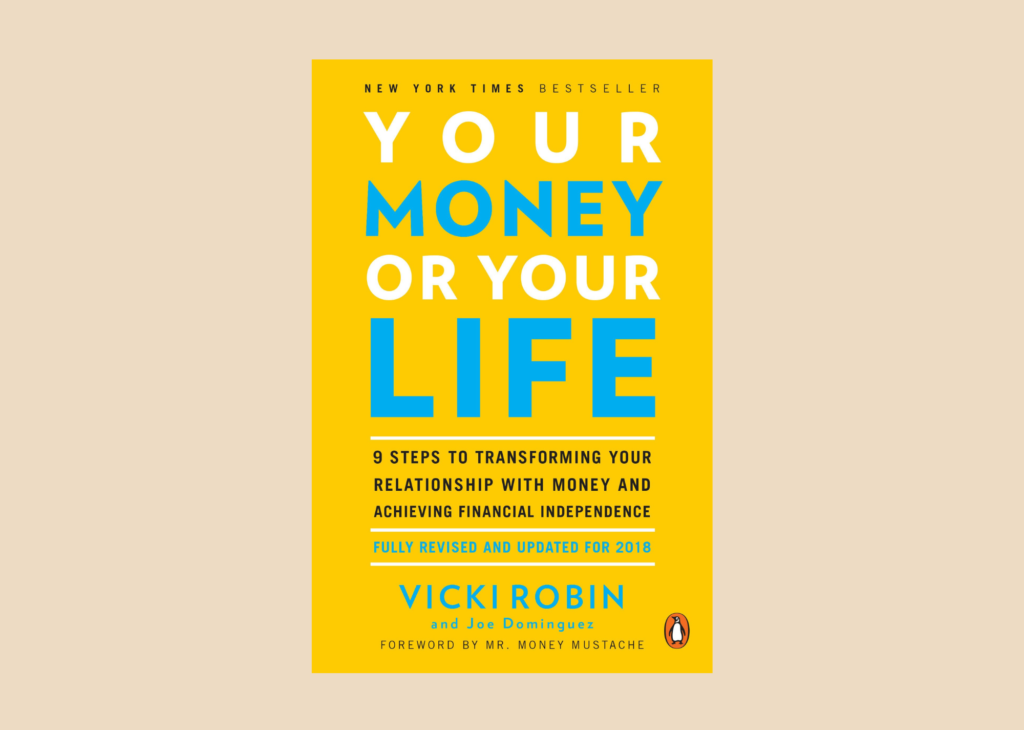
This personal finance book by Vicki Robin and Joe Dominguez provides a comprehensive approach to managing money and achieving financial independence.
The book provides a step-by-step guide to tracking expenses, creating a budget, reducing debt, and building wealth.
Here are some key lessons from Your Money or Your Life:
The importance of tracking expenses: The book emphasises the importance of tracking every expense in order to gain a clear understanding of where money is being spent.
The value of a budget: The book stresses the importance of creating a budget to help individuals make conscious spending decisions and reach financial goals.
The dangers of debt: The book highlights the dangers of consumer debt and provides strategies for reducing and eventually eliminating debt.
The role of mindfulness in spending: The role of mindfulness in spending and encourages individuals to make conscious and intentional decisions about how they use their money.
The importance of aligning spending with values: The importance of aligning spending with personal values and goals and encourages individuals to prioritise spending on experiences and things that bring joy and fulfilment.
The value of financial independence: The book emphasises the importance of financial independence and provides a roadmap for achieving it through conscious spending and smart money management.
9. The Behavior Gap
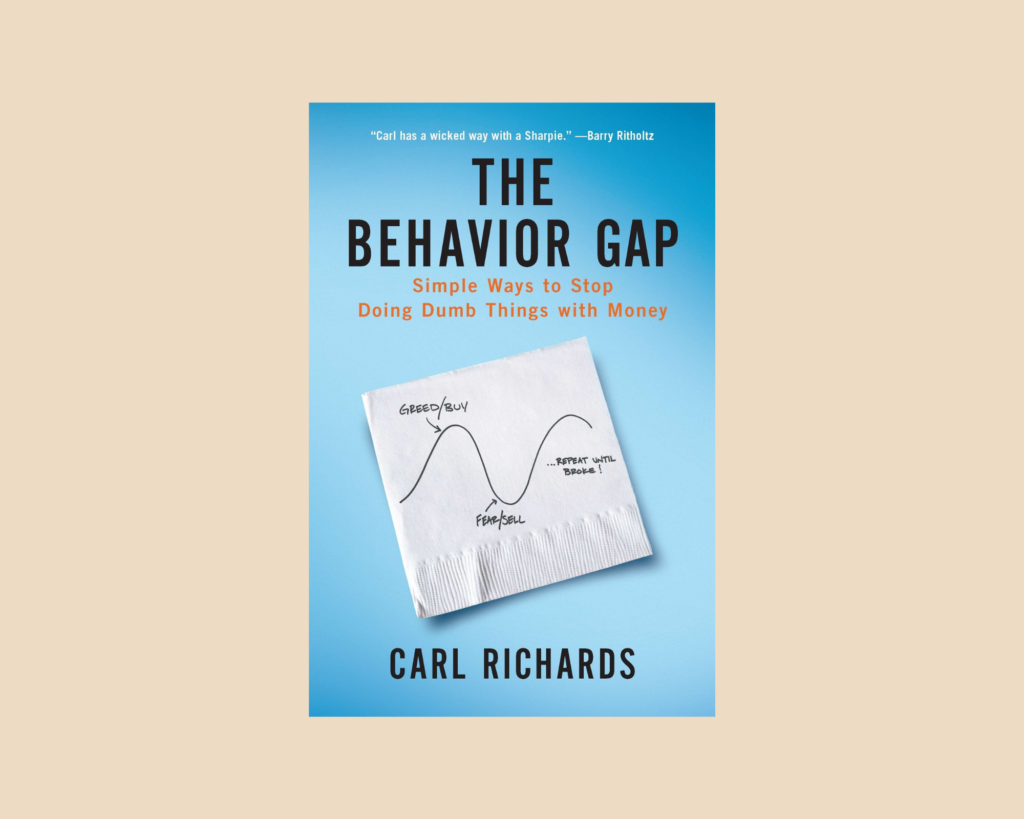
This book, written by Carl Richards, explores the common mistakes individuals make when it comes to their finances. The book focuses on bridging the gap between good financial intentions and actual behaviour.
Here are some of the key lessons:
Understanding emotional biases: Richards highlights the role that emotions play in financial decisions and the importance of understanding personal biases.
The dangers of overthinking: Overthinking and trying to predict market trends can lead to poor investment decisions.
The benefits of a long-term perspective: Taking a long-term perspective when investing helps avoid making short-term decisions based on market fluctuations.
The value of a well-defined plan: Having a well-defined financial plan helps you stay focused on goals and avoid impulsive decisions.
The role of mindfulness: Mindfulness can help individuals make more deliberate and thoughtful financial decisions, avoiding impulsive and emotional decisions.
10. One Up on Wall Street
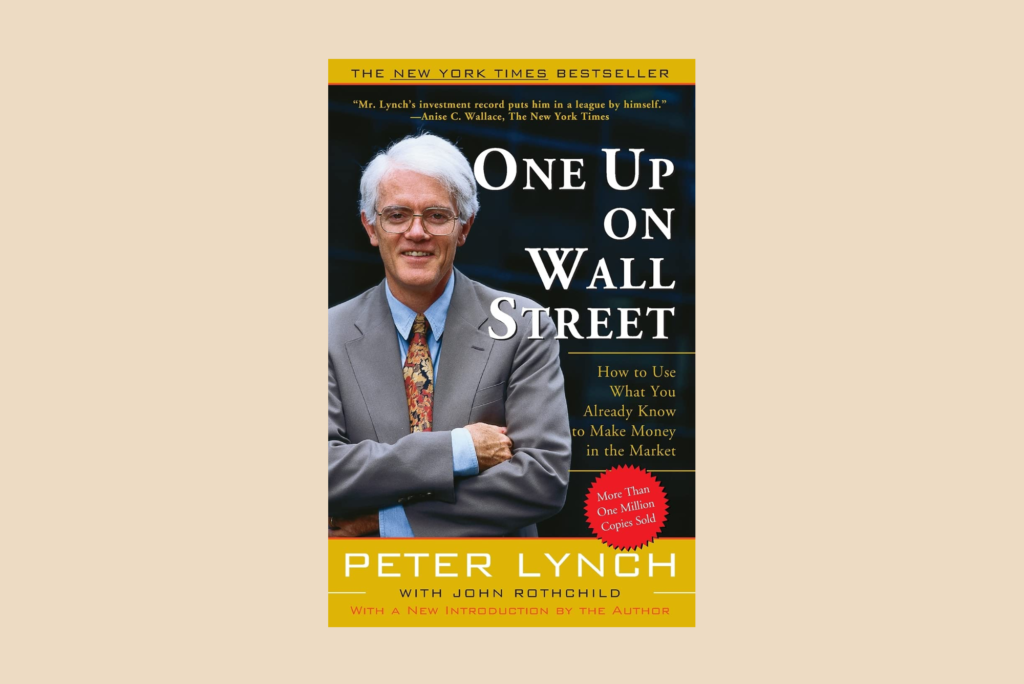
This a book by Peter Lynch, a former investment manager and one of the most successful stock pickers of the 20th century.
The book provides insight into Lynch’s investment philosophy and the strategies he used to achieve his remarkable record of success.
Here are some of the key lessons from One Up on Wall Street:
The importance of research: The importance of researching companies and industries before investing and emphasises the value of visiting companies and speaking with management to gain a deeper understanding of the business.
The importance of understanding a company’s products: Lynch argues that it is important to have a basic understanding of a company’s products and services in order to assess its future growth potential.
The value of contrarian thinking: He emphasises the importance of taking a contrarian approach and investing in companies that are out of favour with the market, as these can often be undervalued and provide substantial returns.
The benefits of a long-term perspective: The importance of a long-term perspective and avoiding short-term thinking, as this can lead to missed opportunities and market volatility.
The importance of being patient: Lynch emphasises the importance of patience and avoiding impulsive decisions, as these can lead to poor investment outcomes.
11. Everyday Millionaires
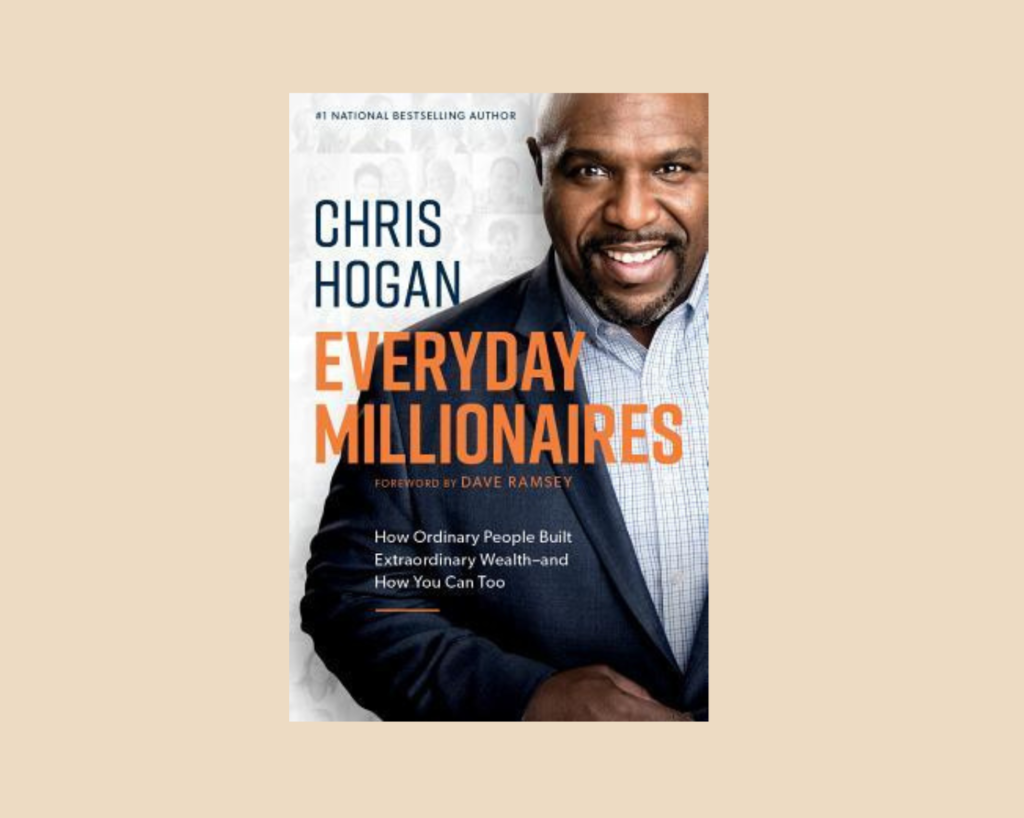
This book was written by Chris Hogan, a financial expert and speaker. The book is based on a survey of over 10,000 millionaires in the United States and provides insights into the habits and behaviours that have helped these individuals build wealth over time.
Here are some of the key lessons from “Everyday Millionaires”:
The importance of budgeting: Hogan emphasises the importance of developing a budget and sticking to it, as this can help individuals to control their spending and save more money each month.
The power of automated savings: Hogan advocates for the use of automated savings, as this can help individuals to save regularly and reach their financial goals more quickly.
The benefits of paying off debt: Hogan stresses the importance of paying off high-interest debt, such as credit card debt, as this can help to reduce financial stress and improve financial stability.
The role of investing: Hogan highlights the importance of investing for long-term growth and provides practical advice on how to get started with investing.
The benefits of saving early: Hogan emphasises the importance of saving early and consistently, as this can help individuals to benefit from the power of compounding over time.
The importance of financial education: Hogan stresses the importance of learning about personal finance and investing, as this can help individuals to make informed and confident financial decisions.
12. The Millionaire Next Door

This book was written by Thomas J. Stanley and William D. Danko. The book is based on a study of over 1,000 millionaires in the United States and provides insights into the habits and behaviours that have helped these individuals build wealth over time.
Here are some of the key lessons from “The Millionaire Next Door”:
The importance of frugality: The authors emphasise the importance of living below one’s means and avoiding waste, as this can help individuals to save more money each month and build wealth over time.
The role of hard work: The authors stress the importance of hard work and persistence, as these traits can help individuals to achieve their financial goals and build wealth over time.
The importance of discipline: The importance of financial discipline, as this can help individuals to avoid impulse purchases and stay focused on their financial goals.
The benefits of delayed gratification: The authors stress the importance of delayed gratification and avoiding instant gratification, as this can help individuals to save more money and build wealth over time.
The importance of entrepreneurship: The authors highlight the importance of entrepreneurship and self-employment, as these paths can provide individuals with more control over their finances and greater earning potential.
